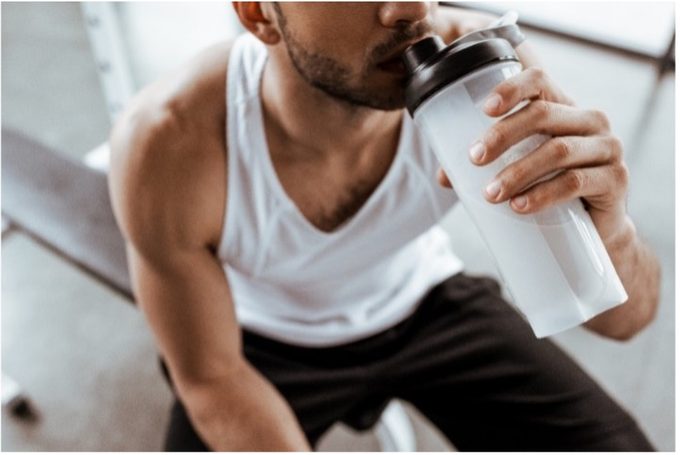Why Milk Is a Good Choice After Exercise
Whether you prefer a spin class, brisk walk or tennis game, nutrition is an important partner to exercise. Here's why milk makes a great choice.

After activity, you need to choose the right foods and beverages to replenish energy, rehydrate the body and repair muscles. Milk is a good post-exercise choice for active people because of its unique mix of nutrients, including fluid, protein and carbohydrates.
Why is it important to get optimal nutrition after exercise?
When you exercise, your body goes through changes. Muscle tissues naturally break down, and the body’s stored energy (glycogen) gets used up. After a workout, you need to hydrate the body, replenish glycogen stores and repair muscle tissue.
Eating and drinking the right mix of nutrients after exercise can help your body recover faster. After a workout or sport, you want to make sure you consume:
- Protein: to help repair muscles
- Carbohydrates: to restore glycogen stores (the storage form of energy in the body)
- Fluids: to replace fluid that’s lost through sweat
- Electrolytes such as calcium, sodium and potassium: to replace minerals lost through sweat
Why is milk a good choice after exercise?
Milk naturally contains protein, carbohydrates, fluids and electrolytes. These are nutrients that the body requires after exercise. Studies show that drinking milk after exercise can:
- Help with recovery and rehydration
- Reduce muscle soreness after exercise,
- Reduce muscle loss ,
- Replenish energy
What about sports drinks?
Studies show that milk is better for post-exercise hydration compared to sport recovery drinks. A study found that milk restores fluid balance better than water or sports drinks. It’s because milk contains protein and is digested more slowly than water or sports drinks.
What nutrients in milk help with sport recovery?
Milk naturally contains a unique blend of nutrients that are beneficial after exercise.
Protein: Protein in milk helps the body repair muscles that were used during exercise. Milk contains whey and casein proteins, which both help rebuild muscle protein. Milk also has a high concentration of specific amino acids including leucine, which support muscle building.
Carbohydrates: Milk contains lactose, a type of carbohydrate. Lactose can be used as fuel before, during and after exercise. Lactose can be stored as glycogen, so it’s available as energy to fuel your workouts. Lactose may also act as a prebiotic, which can support a healthy gut microbiome.
Fluid and electrolytes: The fluid in milk helps replenish water lost through sweat. Milk also contains the electrolytes calcium, sodium and potassium. These help replace electrolytes lost through sweat. Electrolytes also help improve the recovery of skeletal muscle.
What about chocolate milk?
For hard-core workouts longer than one hour, consider chocolate milk. It contains added sugars in addition to natural lactose. That is helpful when additional carbohydrate is needed for fuel. Chocolate milk is often used by athletes training for marathons or triathlons, or for sports tournaments, such as hockey or soccer.
What’s the best way to have milk after exercising?
Milk is readily available, making it a convenient and easy option to help with post-exercise recovery. Milk can be used in smoothies or enjoyed as-is. Whether it’s a weekday hockey game, a weekend run or a week-long volleyball tournament, milk is an excellent beverage after sport to ensure energy, hydration and protein needs are met.




